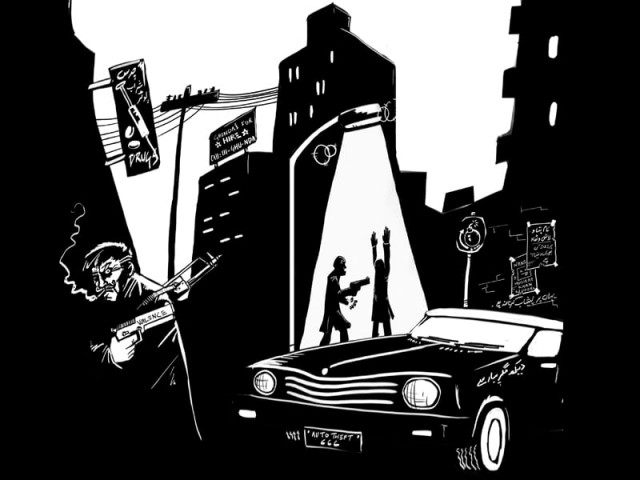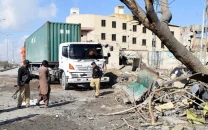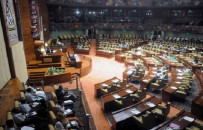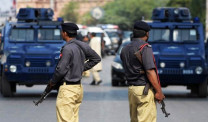The revenge of the vehicle snatchers: Grand auto theft actually the work of just 25 big players
A 3% conviction rate means that small-time crooks easily graduate to the mafia.

There may seem to be an invisible network of hundreds of men in the car-snatching business but the good news is that it all boils down to about 25 big players.
According to SSP Javed Akbar Riaz, who heads the Anti-Car Lifting Cell (ACLC), the hundreds of small criminal gangs in the city, who operate in groups of two and fours, eventually take the loot to these big players.
According to interrogation reports of suspects in police custody, these days a car snatcher is paid Rs100,000 for the job.
This snatcher then hands over the car to the ‘carrier,’ the man who shifts the vehicle to a safe house in another city.
Depending on the destination, for example, if the car is headed to Hyderabad, the cut for the carrier would be Rs10,000. The ‘receiver’ of the car is responsible for arranging the hideout and gets the forged documents made. He gets the engine and chassis numbers changed with the help of certain excise and taxation officials.
Finally, the stolen cars make way to the showrooms in the city, whose owners buy fancy cars at below-market rates.
“The innocent customer who buys such a vehicle from the showroom hardly realises how he is being trapped,” says Riaz.
According to criminologist Dr Fateh Mohammad Burfat, a large number of cars and motorcycles are also disassembled within Karachi and sold for their parts. “There are many such shops in Sher Shah and Ranchore Lines area where parts from stolen vehicles are being sold openly,” he said.
These markets are a target for ACLC’s Riaz, who took the job six months ago. His men have their eyes on Aurangzeb and Shershah market and small mechanic shops.
The senior police officer says the most difficult part is rescuing cars which have been taken into the other provinces, a majority of which land in Balochistan. “Once the vehicle crosses Hub, there’s hardly anyone to check the movement,” he said, adding that the red tape involved in bringing it back from Quetta is a cumbersome process.
Burfat asks how come the vehicles are able to reach Balochistan so easily. “You come across at least a dozen checkpoints when you travel there. The truth is the officials posted at these points are also involved in the lucrative business and take bribes,” he said.
A majority of the vehicle snatchers are youngsters, usually below 30 years. According to ACLC data, half of the criminals are either uneducated or have attended some level of basic schooling. Police officer Riaz says he’s worried that many small-time robbers, like mobile phone snatchers, eventually graduate into the bigger game of car snatching. Burfat says this happens because of the general lack of law and order in the city.
“Once a criminal realises there’s no one to catch him or punish him for his petty crime, he won’t hesitate to commit even murder next,” he says, adding that after committing one murder, when the hardened criminal escapes from the grip of the law again, he becomes a serial killer and there’s nothing stopping him.
The police maintain they are doing what they can. Riaz says that even when the police does its best and nabs the culprit, the courts eventually release them.
Police records show that despite hundreds of arrests made, the conviction rate since 2002 is less than 3%.
This puts the law-enforcement authorities in a fix. “How would they not be demoralised when more than 1,500 officer-level police personnel are killed in the line of duty, while the conviction rate of suspects stays unchanged for years.” For their part, however, the courts blame the police for presenting cases with weak evidence.
To make matters worse, in Pakistan witnesses vanish and testimonies dry up under threat.
This is bad news for men like Wasiq Abbas, whose car was stolen on June 7 from North Nazimabad, near 5 Star chowk. “I had just parked my precious 2000-model Honda Civic VTI Oriel with full options, worth Rs750,000, at around 6pm to check into a store, but when I returned it wasn’t there,” he said.
The Sharae Noor Jehan police station took three days to register his First Information Report. It was only after he used a reference and paid Rs300 in a ‘photostat of FIRs’ fee to a police clerk that the report was lodged. The ACLC only looks into the cases with an FIR.
The victim of the stolen vehicle said that time and again he was told by police station officials to not register the FIR as it would cost him a lot when the car is recovered.
“They said that when the car is recovered, it would only be released when the court gives the order and I would end paying a lot of money in lawyers’ fees.”
Published in The Express Tribune, June 23rd, 2011.



















COMMENTS
Comments are moderated and generally will be posted if they are on-topic and not abusive.
For more information, please see our Comments FAQ